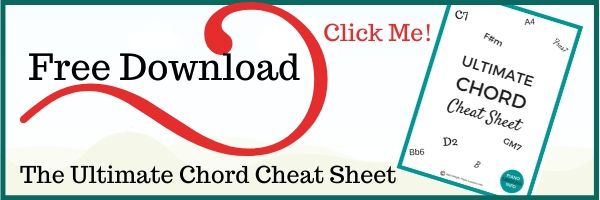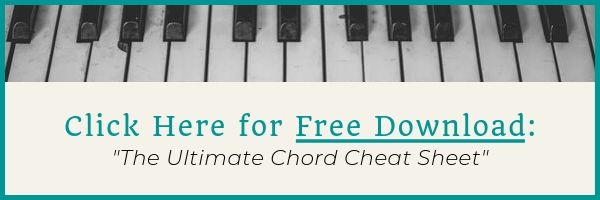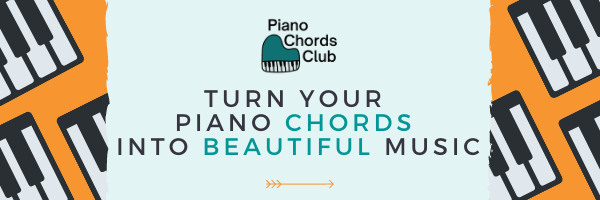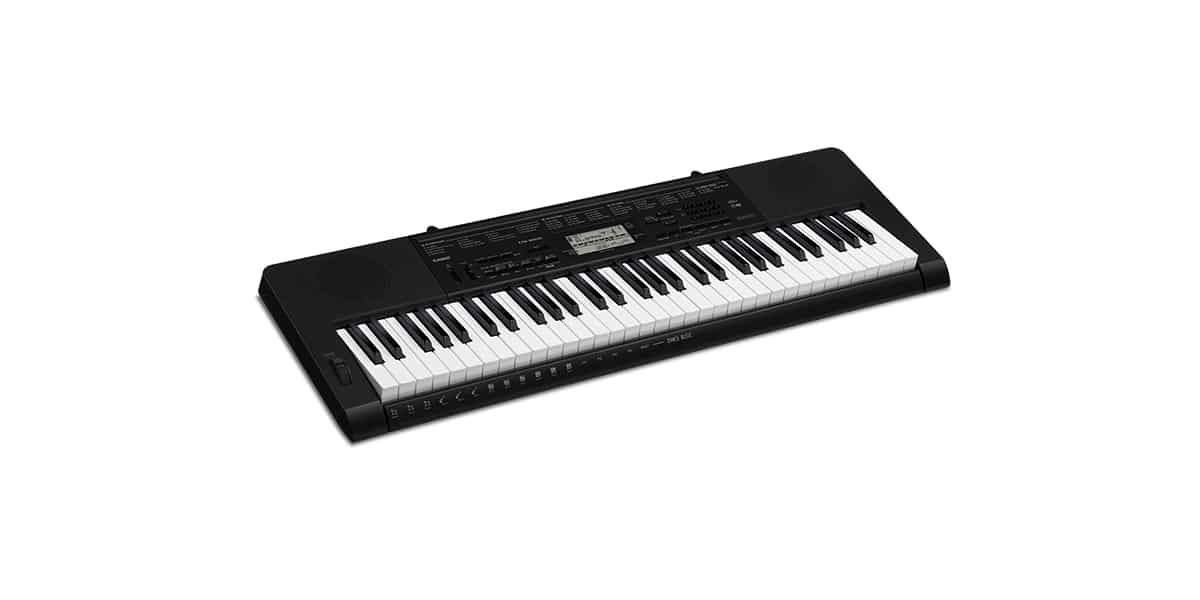Yamaha Digital Piano vs Donner & Casio Keyboards
My Review As a Piano Teacher
Choosing a new keyboard or right digital piano can a little bit overwhelming. Especially with so many brands options available. I recently found myself in this position when my Yamaha digital piano I teach lessons on started play random notes and flash lights during my lessons. It wasn't an ideal situation!
So I had to work out if I was going to get a new Yamaha or something else.
As a piano teacher (and player), I've had the opportunity to play and teach on various models. And while trying to teach piano when the Yamaha stopped working well, I had the Yamaha, a Casio I borrowed and a new keyboard, which was a Donner, here. So it was the perfect opportunity to test the brands out against each other.
Comparing Yahama, Casio & Donner
The keyboards I will compare below are the the Yamaha Arus YDP-142, the Casio CDP-100, and the Donner DDP-80. While these are unique models, I find that they represent the brands pretty well.
Each of these keyboards offers something unique, catering to different needs and budgets. I'll let you know my personal experiences and insights into these three models, helping you decide which one might be the best fit for you. Whether you're a beginner, an intermediate player, or more advanced, we'll look at the pros and cons plus what to consider.
Video Review:
Yamaha Arius YDP-142: A Trusted Classic
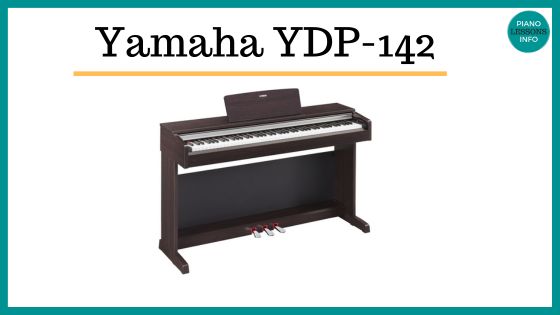
Key Features:
- Sound Quality: Rich and authentic, closely mimicking a traditional piano.
- Touch Response: Excellent weighted keys that offer a realistic playing experience.
- Quality: High quality look and experience when playing
- Pedals: Stuck on and won't move around
My Experience: I've used the Yamaha Arius YDP-142 for about ten years, and overall, it has been a solid performer. The sound quality is where this model truly shines, delivering a warm and resonant tone that is ideal for both classical and modern pieces. The keys are well-weighted, providing a tactile experience that closely resembles an acoustic piano.
However, the YDP-142 isn't without its flaws. It doesn't go as loud or as soft as a real piano without adjusting the volume. This is the biggest drawback in my opinion. Living by the ocean (for about half of the piano's life), I've encountered issues with the piano malfunctioning probably due to salty air, which may have caused internal corrosion. The piano started playing recorded songs or random notes on its own, and the sound would randomly change, making it unusable during lessons.
Despite these issues, the Yamaha Arius YDP-142 remains a favourite of mine because of its feel and sound quality. If you're in a more stable environment, this could be a fantastic long-term investment.
Pricing: Yamaha's are at the higher end of the digital piano price range. If you are looking for something that will last and will respond similar to a real piano, consider this one. But it is more of an investment.
Pros:
- Authentic sound and touch
- Sturdy build
- Three pedals that are part of the piano
- Good enough to teach piano on
Cons:
- Sensitive to environmental factors
- Limited dynamic range without manual volume adjustment
- Higher price point
Casio Keyboards: Budget-Friendly & For Beginners
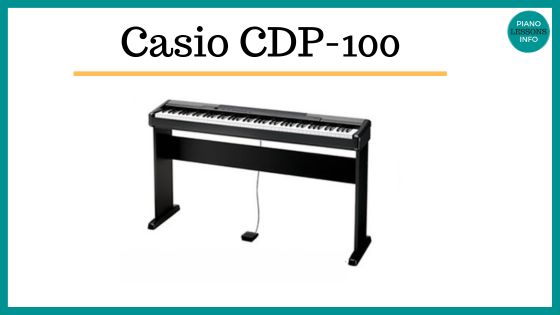
There are a lot of Casio's out there and it's a often the beginner model that people choose. I used the Casio CDP-100 for this review but it's very similar to all other Casio keyboards I've played.
Key Features:
- Affordability: One of the most cost-effective digital pianos on the market.
- Portability: Lightweight and easy to move.
- Dynamics: Capable of a wide dynamic range from soft to loud.
My Experience: A Casio, like the Casio CDP-100 I borrowed, is often the first choice for beginners due to its affordable price and decent performance. While it doesn't quite match the Yamaha in terms of sound quality, it does offer surprising dynamic control for its price point. The keys required less "finger muscles" to be able to play. This means while it's easy to play the Casio, it can be harder when players switch to many other keyboards and especially pianos.
One downside is the basic pedal, which is not ideal for more serious playing. The sound quality is okay for beginners, but it lacks the richness and depth found in more expensive models. While they are light and easy to move, they are also easy to shake when playing. Which can be annoying.
Honestly, a Casio keyboard is my least favourite and I kinda don't like them. But it's often a first choice for a parent buying a keyboard to try out learning piano.
Pros:
- Inexpensive
- Can have good dynamic control
- Portable and easy to set up
- Often have lots of electronic sounds that kids like
Cons:
- Lighter keys may not suit advanced players
- Portability makes it less stable to play
- Basic pedal lacks responsiveness and can slide away on you
- Sound quality is average
Donner DDP-80: The Middle Ground
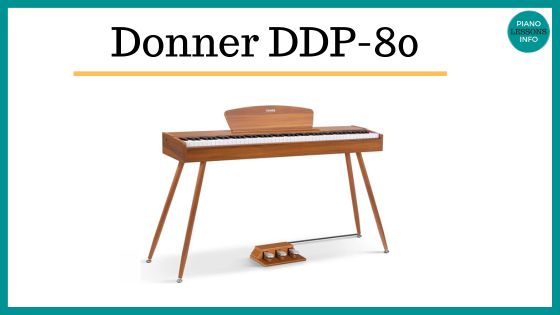
Key Features:
- Design: Sleek, with a retro 70s vibe.
- Touch: Firmly weighted keys, offering a substantial feel.
- Affordability: Half the price of the Yamaha, with competitive features.
My Experience: The Donner DDP-80 is a great middle-ground option for those who want something better than an entry-level keyboard but aren't ready to invest in a top-tier model. The design is attractive and practical, with spaces on the sides for placing music or accessories—something the Casio lacks.
In terms of playability, the Donner's keys are more firmly weighted than the Yamaha, which could be a plus for some players who prefer a bit more resistance. The sound is decent, though it can get a bit distorted at higher volumes. For teaching and casual playing, this model performs well, especially considering its price.
The pedal is the biggest drawback for me. Sometimes it doesn't quite catch the sound fast enough and it doesn't last long enough. A Casio can be similar.
This keyboard doesn't have any additional sound settings - no strings or organ or anything. For me, that's just fine but you may like other sounds so just worth pointing that out.
Pros:
- Attractive, retro design
- Firmly weighted keys
- Affordable with good features
Cons:
- Sound can distort at high volumes
- Not as dynamically sensitive as the Casio
- Pedal isn't as responsive as I'd lik
Which Piano Keyboard Should You Buy?
After testing and teaching with all three of these digital pianos, my personal favourite remains the Yamaha. Its authentic sound and touch make it nice to play, especially for more advanced pieces. However, I was disappointed with it's short lifespan.
If you're on a tight budget, the Casio CDP-100 is a solid choice for beginners who need a reliable keyboard to start with. For those looking for a balance between price and performance, the Donner DDP-80 offers an excellent compromise with its stylish design and firmly weighted keys.
Ultimately, the best choice depends on your specific needs, playing level, and budget. Whether you're a beginner, an intermediate player, or a teacher, one of these models is sure to meet your requirements.
Ready to find the perfect digital piano?
Explore the Yamaha Arius YDP-142, Casio keyboards and Donner DDP-80 on Amazon and get playing!
Recent Articles
-
Piano Notes Chart
Nov 20, 23 10:21 PM
Find a piano notes chart for treble clef and bass clef notes as well as the different types of notes. -
D Chord on Piano + Diagram, How To & Theory
Oct 24, 23 12:20 AM
Learn how to play the D chord on piano with diagram, fingering, D/A, D/F# and a theory explainer. -
Diminished Piano Chords: Chart & How to Make Them
Oct 09, 23 09:23 PM
Learn the different diminished piano chords and how to make them. Here you'll find both a diminished chord chart and an explanation.
- Home
- Buying a Keyboard
- Yamaha Digital Piano
Free Download:
Ultimate Chord Cheat Sheet
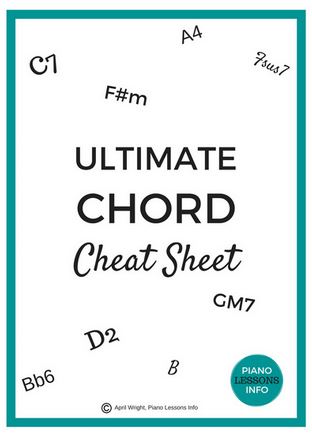
Subscribe below and get free access to the (printable) Ultimate Chord Cheat Sheet.
